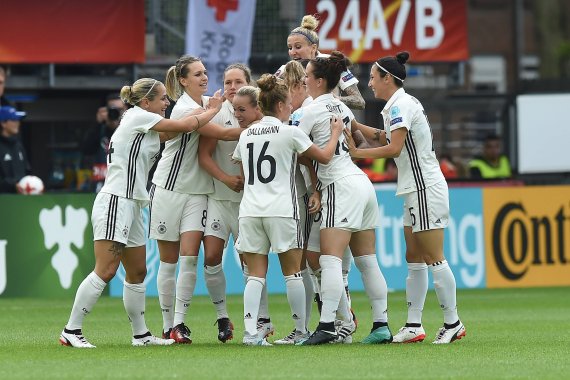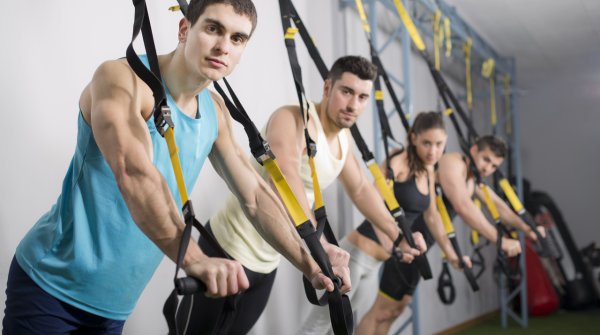
Just recently, UEFA reached a decision that will have a much greater impact on sport marketing than first meets the eye. It will “unbundle” rights and create completely new marketing opportunities for women’s soccer, which until now had been a pendant to the men’s competitions.
In this way, the needs of an arising mega trend will be met. Women’s sports now offers clubs, associations, and sponsors completely new target groups and marketing opportunities.
Personnel consultant Gunther Schnatmann has analyzed which areas in women’s sports people aspiring to a top job should be looking at.
On the one hand, UEFA has decoupled the sponsorship of the UEFA Women’s EURO 2021, the UEFA Women’s Champions League from 2018 on, and its national competitions for young women from the men’s competitions and put together completely new marketing packages. In addition to that, however, it also wants to develop new “innovative sponsoring models.”
An important building block for this is definitely the soccer-wide initiative “Together #WePlayStrong”, which aims to get girls and young women interested in the sport. The objective is above all to help girls acquire more self-confidence and assertiveness through the team sport of soccer.
A social component is involved, in other words, and it is one which, for the companies, is linked to the sponsorship of female heroes and idols. In the future, those seeking to gain new sponsors for women’s soccer as marketers must be able to judge both whether and how these fit in with the social commitment. For the companies, women’s soccer and related social initiatives offer them opportunities to reach out to new target groups and boost their own social image at the same time.
On a small scale, this has been successful in Frankfurt am Main, where Commerzbank sponsors both FFC Frankfurt, a successful women’s soccer club, and the “Girls Wanted” soccer events.
Above all, companies must question old clichés (women’s sports have less exposure, we can’t reach our target audience through it, etc.). The car manufacturer Nissan is the best example. It sponsors Manchester City Women, whose victory in the SSE Women’s FA Cup final in 2017 was watched by 35,000 at Wembley and a million people on TV.
Cup sponsor SSE, in turn, is a major national energy provider. In England, companies are a step ahead with their involvement in women’s soccer, as these examples show.
Nissan is also involved in other sports and championships: Netball Australia or the Women's Cricket World Cup. As General Manager Global Brand Strategy at Nissan, Gerhard Fourie was responsible for starting this — with a strategy that will definitely be appropriated by other companies in future: “We’ve challenged a few popular assumptions about women’s sports, including assumptions about the viewer.”
There are actually a lot more families or fathers who go to the games with their children or watch at home than people assume. “The unique fan behavior in women’s sports certainly offers brands interesting possibilities for addressing customers,” says Fourie.
To return to FFC Frankfurt: alongside Commerzbank, insurance company Generali is the main sponsor. These two financial services providers are naturally eyeing the target group of women interested in sports.
While buying a car or visiting the DIY store are activities typically ascribed to men according to traditional ideas of social roles and the way advertisements have usually approached these topics, making provisions for the future, saving up for one’s own house, and family finances tend to fall into the women’s area of responsibility. As women’s sports have become more attractive and their marketing has improved, companies’ have naturally become more interested in reaching new, attractive target groups in this area.
This also extends to companies that have had no previous contact with sports sponsorship. These could be other banks and insurers or even tour operators or mobile phone companies.
Increasingly, it will be the responsibility of sports marketing to get this message across to these businesses and to lay out the target groups for them based on market research. Just as, on the other side, companies that have had little involvement in sports until now must professionally address the possibilities and opportunities that sponsorship has to offer. For that, they need internal specialists or external business consultants.
Women in sports will therefore change a lot and reorganize the whole marketing business in this field. It’s already begun. For marketers and prospective marketing specialists in the sports business, now is the best time to jump on board!
An article by Gunther Schnatmann, personnel consultant (schnatmann media), application coach, and media trainer.

 Sports BusinessSki Mountaineering Goes Olympic: What Milano-Cortina 2026 Means
Sports BusinessSki Mountaineering Goes Olympic: What Milano-Cortina 2026 Means
- ISPO awards
- Mountain sports
- Bike
- Design
- Retail
- Fitness
- Health
- ISPO Job Market
- ISPO Munich
- ISPO Shanghai
- Running
- Brands
- Sustainability
- Olympia
- OutDoor
- Promotion
- Sports Business
- ISPO Textrends
- Triathlon
- Water sports
- Winter sports
- eSports
- SportsTech
- OutDoor by ISPO
- Heroes
- Transformation
- Sport Fashion
- Urban Culture
- Challenges of a CEO
- Trade fairs
- Sports
- Find the Balance
- Product reviews
- Newsletter Exclusive Area
- Magazine



